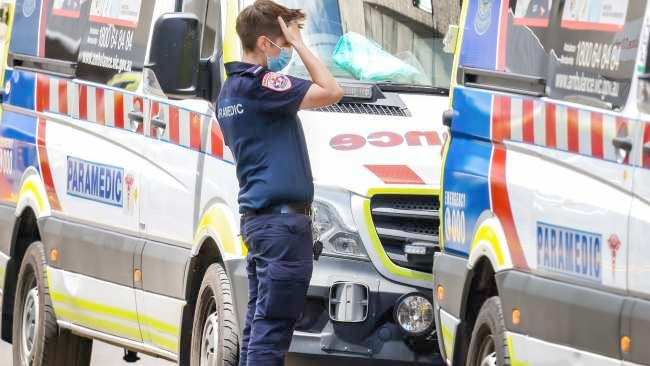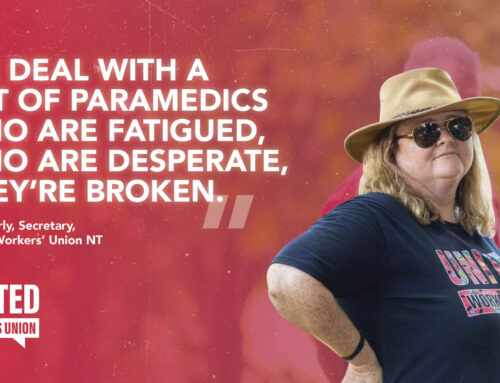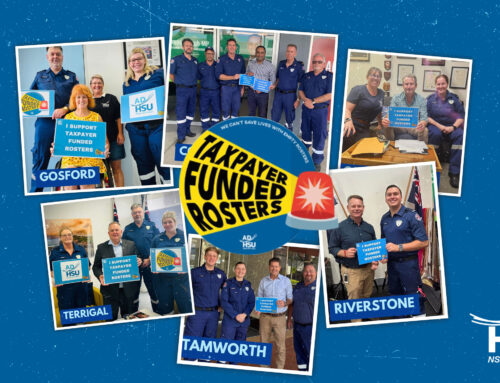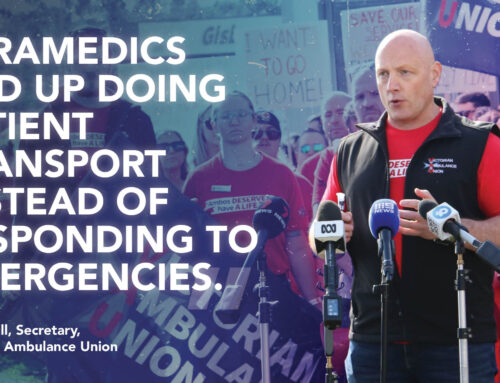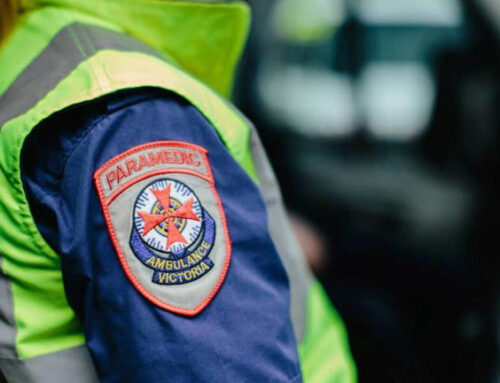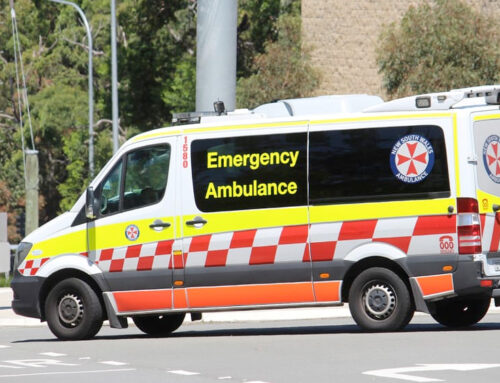The Victorian Ambulance Union says the state’s paramedics have been left with “no alternative” than to take “hard industrial action” after members overwhelmingly rejected a new Enterprise Bargaining Agreement that came after almost a year of negotiations.
Victorian paramedics are set to take industrial action after union members overwhelmingly rejected an Enterprise Bargaining Agreement that’s been under negotiation for almost a year.
More than 86 per cent of the Victorian Ambulance Union (VAU) membership has voted to reject the EBA offer put forward by Ambulance Victoria and Jacinta Allan’s Labor government, claiming they have been left with “no alternative” than to take industrial action in order to achieve “a reasonable outcome” for their members.
“Over the past few years our members have faced the worst of the pandemic head on. It would be a mistake to think they won’t stand up to an employer that doesn’t value them,” VAU Secretary Danny Hill said in a statement.
“Rest assured our members will take hard industrial action to get the outcome they deserve.”
The threat of industrial action comes after more than 60 meetings between the union, Ambulance Victoria and the Allan government.
Under the rejected EBA offer, Victorian paramedics would have received a three per cent salary increase and a $1800 lump sum payment at the end of each year of the agreement.
In return, the ambulance workforce was asked to agree to reduced sick leave, overtime, and travel allowance entitlements.
Ambulance Victoria Chief Executive Jane Miller said the rejected EBA offer was within the Victorian Government’s Wages Policy and Enterprise Bargaining Framework, but that Ambulance Victoria remained committed to reaching a “mutually beneficial agreement”.
“Ambulance Victoria is committed to creating a better workplace for our people and a quality experience for our patients and the community we serve,” Ms Miller told skynews.com.au
“Our desired outcome is a fair, reasonable and financially sustainable agreement which delivers on our commitment to developing and supporting our people and providing high quality care to the Victorian community.”
However the VAU secretary said a large number of the union’s claims remained unaddressed, including an improved wage structure that values experienced workers and improved end of shift management provisions so paramedics can finish their shift on time.
“Every day paramedics work more than 800 hours of overtime after the end of their shift. That’s not just time away from their families. It’s a complete inability for a paramedic to commit to picking up kids from school or taking them to swim lessons because of the work demands,” Mr Hill said.
The union secretary also said the VAU had submitted several proposals for improving productivity but their suggestions were rejected by Ambulance Victoria – these included a proposal for shorter nightshifts that can be worked by part time members as part of their regular rostered hours of work rather than rostering additional shifts as overtime.
“AV had a combined overtime bill of over $95 million dollars in the last financial year. The VAU has put forward suggestions to reduce that expense including reducing incidental overtime. But AV would rather target paramedic entitlements such as travel entitlements, personal leave, and overtime entitlements for members on reduced hours due to their family circumstances,” the VAU secretary said.
The Victorian Labor government has invested more than $2 billion into growing and strengthening the state’s ambulance service since it was elected in 2014.
This has included recruiting more than 2,200 additional paramedics and delivering 35 new or upgraded ambulance stations – with another 16 on the way.
The government has also established a new Centre for Paramedicine in partnership with Victoria University that will help us train up to around 1,500 paramedic students each year.
Despite the investments, a survey conducted by Swinburne University and RMIT in 2022 found that 45 per cent of paramedics said they often think about quitting (up from 29 per cent in 2020), while 16 per cent said they intended to seek new employment opportunities in the following year (up from 9 per cent).
Secretary Hill said that while being a paramedic was once a lifetime career, more than half of the current workforce had less than five years in the job.
“If we don’t fix the ambulance workplace in this round of enterprise bargaining, we are in trouble,” he said.
A Victorian government spokesperson said paramedics played a “critical role in keeping Victorians healthy and safe” and that negotiations were ongoing.
“We value the dedication and hard work that our paramedics do every day… and we thank them for their service to the state,” the spokesman told SkyNews.com.au.
“All parties continue to engage in good faith to negotiate a new enterprise agreement. While these discussions are underway, it would not be appropriate to comment.”

